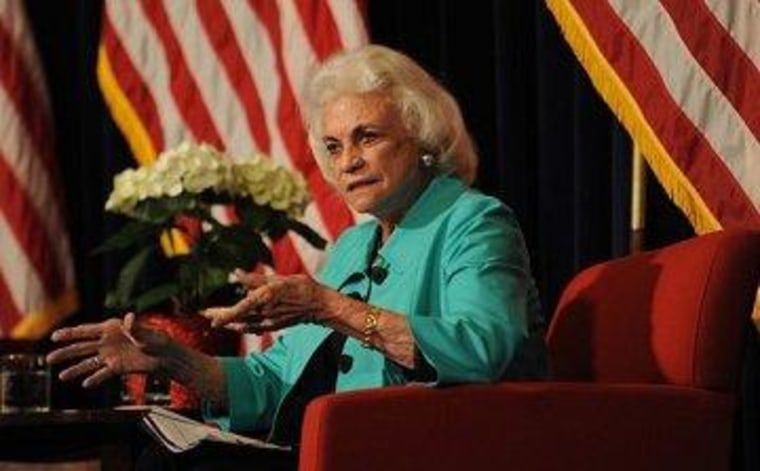Retired U.S. Supreme Court Justice Sandra Day O'Connor hasn't given much thought to which was the most important case she helped decide during her 25 years on the bench. But she has no doubt which was the most controversial.It was Bush v. Gore, which ended the Florida recount and decided the 2000 presidential election.Looking back, O'Connor said, she isn't sure the high court should have taken the case."It took the case and decided it at a time when it was still a big election issue," O'Connor said during a talk Friday with the Tribune editorial board. "Maybe the court should have said, 'We're not going to take it, goodbye.'"
In talking to the editorial board of the Chicago Tribune, the retired justice added that the case "gave the court a less-than-perfect reputation."
You don't say.
O'Connor went on to say Florida election officials "hadn't done a real good job there" -- she seems to have quite an appreciation for understatements -- but the high court "probably ... added to the problem at the end of the day."
Had the Supreme Court not intervened, the 2000 recount process in Florida almost certainly would have continued. If all the state's ballots had been properly counted, then-Vice President Al Gore "would have won, by a very narrow margin," according to an independent newspaper consortium that examined all of the ballots.
O'Connor, in other words, was one of five justices who directly dictated the outcome of a national presidential election, helping elect the candidate who came in second.
